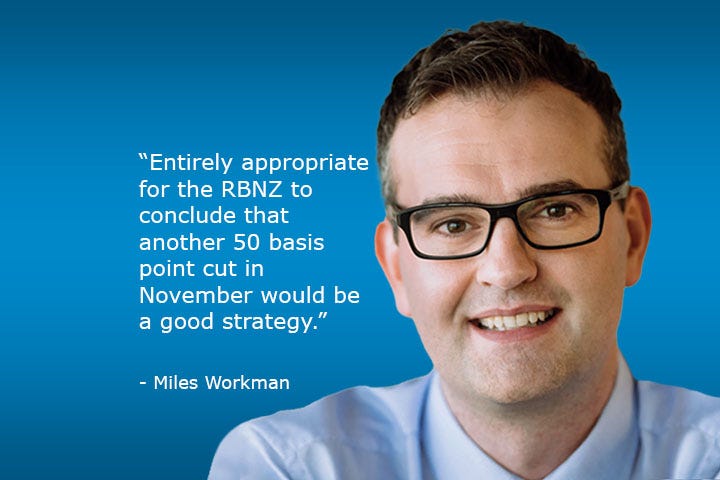New Zealand’s inflation falls more than expected, with markets now wondering if a 75 basis point cut in November is on the cards; UK inflation was also weaker; Australian jobs growth is expected to slow; And the Philippines and Thailand cut rates.
In our bonus Deep Dive interview, ANZ Senior Economist Miles Workman explains what New Zealand’s weaker inflation could mean for the Reserve Bank’s November decision.
5 things to know:
UK inflation was weaker than expected at 1.7% annually in September - traders now expect 25bps cuts by the Bank of England in November and December. Tonight, attention turns to the European Central Bank’s decision. ANZ Chief Economist Richard Yetsenga says a 25bps cut to 3.25% is on the cards.
New Zealand’s inflation rate fell more than expected to 2.2% in Q3, from 3.3%. Tradable prices were down 1.6% from a year ago. Non-tradable inflation was below expectations at 4.9%. ANZ Senior Economist Miles Workman says while that’s still too high, underlying economic weakness means it won’t stop rate cuts.
Market pricing immediately shifted to slightly more than 50 basis points worth of cuts at the RBNZ’s next meeting in November, indicating the discussion will now turn to whether it will be a 50 or 75 basis point cut - Miles says ANZ Research is sticking with 50 for now.
In Australia today, the RBA will be keeping a close watch on September jobs data after admitting last month that it had been surprised by ongoing strength. ANZ Head of Australian Economics Adam Boyton expects unemployment to hold at 4.2% and employment growth to slow to 25,000.
The Philippines’ central bank, the BSP, cut rates as expected by 25 basis points to 6%. Bank Indonesia paused, holding at 6% - ANZ Research forecasts both will cut again in December. The Bank of Thailand delivered a surprise 25 basis point cut, earlier than expected, says ANZ Economist Krystal Tan.
Cheers
Alex
PS: Bernard is away this week on family leave. Catch you tomorrow with a review of those Australian jobs figures.












